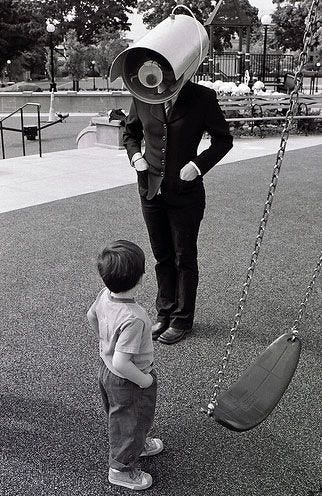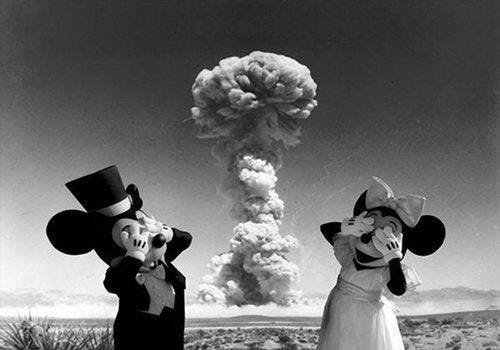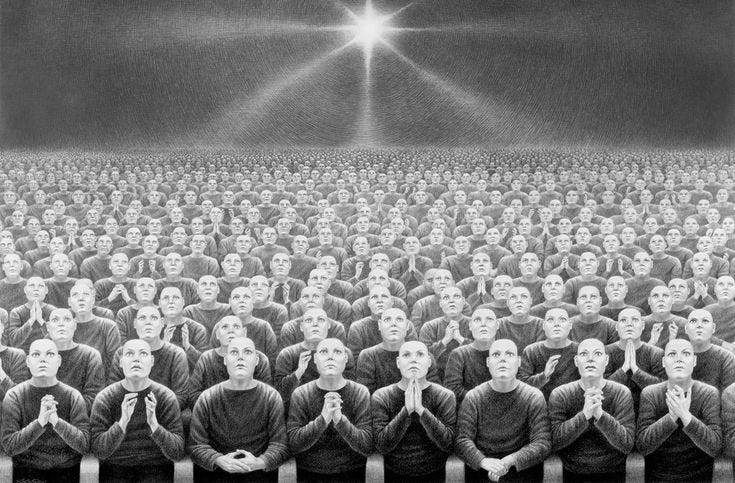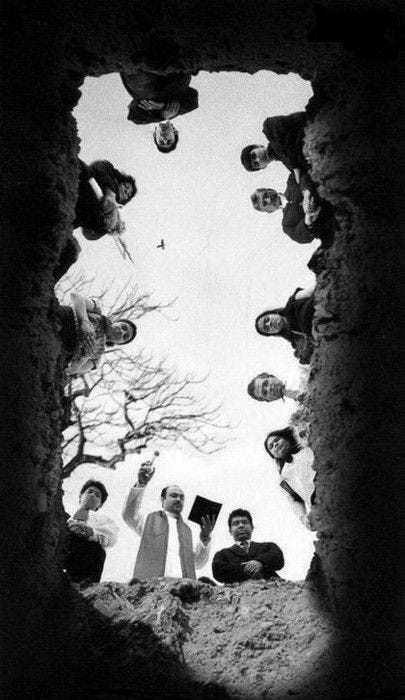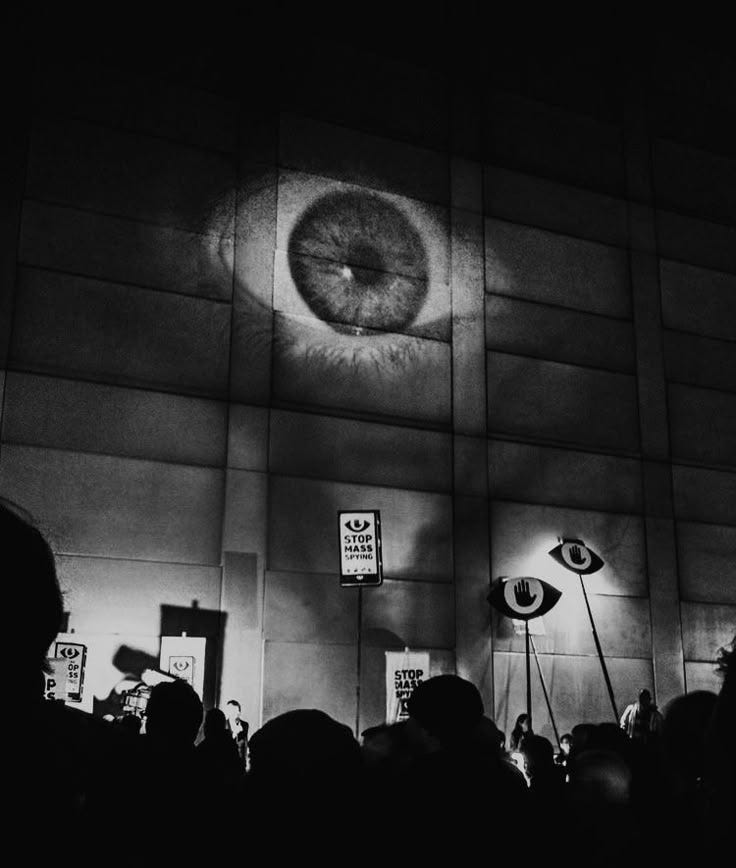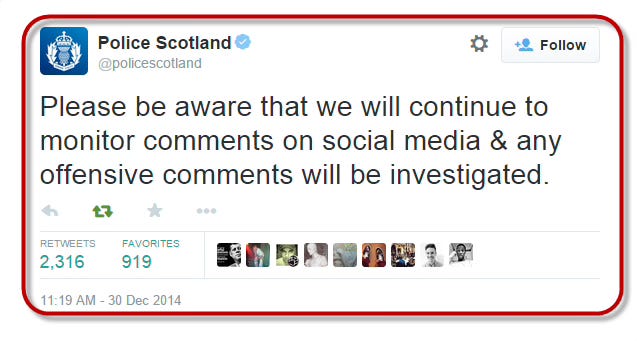Write & Lift is an ethos of personal and spiritual development through conscious physical exertion and practice of the writing craft. Through this effort to strengthen our bodies and minds, we become anti-fragile and self-respecting sovereign individuals. Through this effort, we may stand against untruth and evil and create a new culture of vitality, strength, and virtue
Vibes? Essays? Is This the Dystopia You Imagined?
The question the Boomers and Gen X asked was always which dystopia would come true—Orwell's boot stamping on a human face forever, or Huxley's gentle suffocation by pleasure.
It’s a fun exercise, though, based on an infantile worldview that sees “governance” and “politics” through the lens of media abstraction. Animal Farm, Brave New World, 1984, Fahrenheit 451: every problem of 20th-century politics was always filtered through this lens, much like Gen Z and Millennials look to The Hunger Games or The Handmaid’s Tale to “make sense” of what’s going on.
This misses the point entirely. Dystopia is not one-dimensional. There is no grey ascendent cloud that shows up one day to hover continually over the population, pouring acid rain from its maw on those selling their children for a loaf of bread. We still make love. Go to the beach. Buy tasty food. Work jobs that pay our bills. Watch TV. Things are different, but not different enough for us to take notice or care. Sometimes the shadow breaks through, like when a 90-year-old vet describes the difference between the country he fought for as a young man and the one he lives in today, but for the rest of us, who lack the context, who’ve come of age in the panopticon, our instinct to shock and disgust atrophies.
“Soft” dystopia is less sexy. We didn’t get Huxley, Orwell’s, or Bradbury’s worlds—nobody won—we got all of them, and they’re far more banal than we ever could’ve predicted.
The Beautiful Machine
Your phone buzzes. You pick it up without thinking (it’s muscle memory now)—pavlovian response to the digital bell. The screen lights up your face in the darkness of your bedroom at 11:47 PM and you're scrolling, scrolling, always scrolling through an endless feed of nothing. Soft marketing for OnlyFans h0es and outrage porn and advertisements disguised as content and content disguised as advertisements.
You're in a hypnotic trance. Scientists have known for decades that screens put your brain into alpha wave states, the same frequency as hypnosis, as light sleep, the moment just before you lose consciousness entirely. You're being programmed, but you already knew that.
This is Huxley's world. “Soma” for the masses, except in our timeline the drug is digital and the high never really ends because the supply is infinite. For seven hours a day, the average American stares into their phone, absorbing whatever the algorithm decides they should think, feel, want, or fear.
But what Huxley couldn’t foresee (the dull evil of it) is that the same device that pacifies you also watches you. Every click is tracked. Every pause is measured. Every micro-expression recorded by that front-facing camera you forgot was there. The entertainment system is also the surveillance system. The soma is also the telescreen. The carrot and the stick is delivered through the same machine. For the compliant, it’s endless pleasure. For the resistant, total scrutiny. Most people, faced with this choice, choose the carrot. Who wouldn't?
We have a caste system now, just like Huxley predicted, except it's not based on genetic engineering (yet). It's based on digital compliance. The Alphas know which words to avoid, which thoughts to keep private, which behaviors to modify for the cameras, how to navigate the digital panopticon for social leverage. The Epsilons either can't or won't play the game. They're systematically excluded from participation in polite society—not through explicit law but through the quiet violence of algorithmic exile. They create an independent underclass; Instagram, Facebook, TikTok are out. Telegram, WhatsApp, X, and Substack (thank you Substack) are in.
Most aren’t being forced to comply. They're begging to comply. They want their news pre-filtered to avoid "misinformation." They want their social media curated to prevent "harmful content." They want their choices limited to prevent "decision fatigue." They want their thoughts guided to prevent "anxiety."
Without realizing it, freedom has become a burden they're desperate to shed.
The most frightening thing about our modern dystopia isn't the surveillance or the censorship or the social engineering. It's the enthusiasm. People are volunteering to be controlled. They're lining up for it. They're paying subscription fees for it.
They've weaponized our own psychology against us. They know that humans are fundamentally lazy, that we'll choose the path of least resistance, that we'll trade almost anything for comfort and convenience. They know that most people, given the choice between thinking for themselves and having their thoughts provided for them, will choose the latter every single time. Thinking is hard. Thinking is uncomfortable. Thinking forces you to confront the possibility that everything you believe might be wrong, that your life might be meaningless, that you might be complicit in your own destruction.
Much easier to scroll. Much easier to consume. Much easier to let the algorithm decide what you should care about today.
In 1984, Winston Smith was tortured into compliance. The citizens of our brave new world torture themselves.
Winston Smith Is Not Today’s “Everyman”
There's a moment in 1984 when Winston realizes that the Party doesn't just want obedience—it wants love. It wants you to genuinely, authentically adore your own subjugation. In Brave New World, John the Savage discovers that nobody wants to be saved from their chains because they don't recognize them as chains.
Both moments are playing out simultaneously.
In high school English class, Winston Smith was held up as a paragon of the “everyman’s” contempt for the crushing weight of totalitarianism. Smith was a representative of the silent majority, not an anomaly. When I say that the 21st century is “fake and gay” I’m only half joking. We’re fake—in that we accept the fakeness of reality and therefore become fake ourselves. And we’re gay—in that we’ve conditioned ourselves into a set of psychological, physical, and spiritual behaviors that provide no underlying capacity for continual human flourishing. The worst outcome is the least exciting.
We imagine that the “resistance” will arrive with fanfare. But there will be no fighting, goose-stepping soldiers marching down Main Street. No dramatic moment when freedom dies to thunderous applause while the young Le Resistance martyrs join in underground tunnels to plan acts of sabotage through the fog of cigarette smoke. That’s Hollywood. And Hollywood is the top of the fake and gay funnel we’ve trapped ourselves in. Absolute tyranny creeps in on cat feet, one small compromise at a time, one convenience at a time, one emergency measure that becomes permanent at a time. By the time Aaron Burr shot Alexander Hamilton in 1804, we were already fifteen years down an irreconcilable path. It’s just taken us two hundred years to reach the front door of the inevitable.
The Russians didn't wake up one morning in 1917 and decide to become Soviets. It was gradual. A little revolutionary fervor here, some economic desperation there, the promise of bread and land and peace. By the time they realized what they'd traded away, it was too late. The kulaks weren't immediately shipped to gulags—first came the promise of equality, then the collectivization of farms, then the elimination of "enemies of the people." Each step seemed reasonable to those living through it, even necessary.
We tell ourselves it couldn't happen here because we're watching for jackboots and brown shirts. But that's not how it works anymore. Modern totalitarianism doesn't need to break down your door at midnight. It just needs to make sure you never want to leave your house in the first place.
Soft dystopia is sustainable. Soviet communism collapsed because it couldn't deliver basic goods. Tens of thousands of government employees set the price for goods (pencils, pickled herring, tires) every single day. Mao's China starved millions and planted iron smelting equipment in the hands of gaunt and uneducated peasants. The dark comedy of 20th-century totalitarianism taught us what not to do. We created a system that gives people exactly what they want and it’s been our number one export: endless entertainment, constant validation, the illusion of choice. Why would anyone rebel against a system that provides infinite Netflix and two-day shipping?
Previous totalitarian systems were brittle because they relied on force. Ours is antifragile because it relies on addiction and comfort. The more you use it, the stronger it becomes. The more data you feed it, the better it gets at predicting and controlling your behavior. The more dependent you become, the less capable you are of imagining life without it.





